Posts Tagged: collective
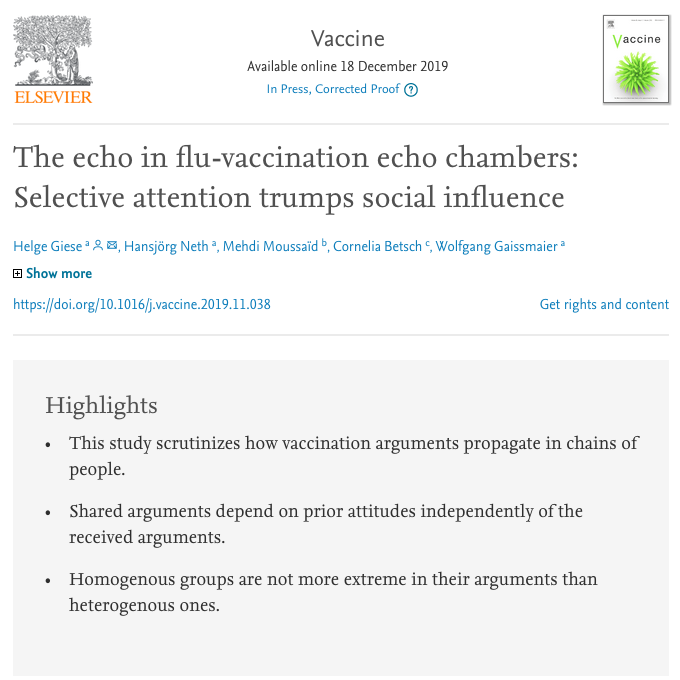
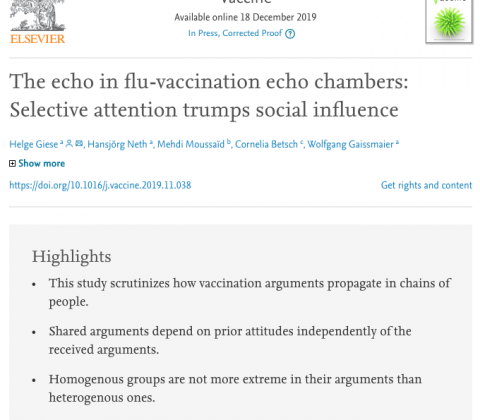
Paper: The echo in flu-vaccination echo chambers
Helge Giese, Hansjörg Neth, Mehdi Moussaïd, Cornelia Betsch, Wolfgang Gaissmaier
The echo in flu-vaccination echo chambers: Selective attention trumps social influence
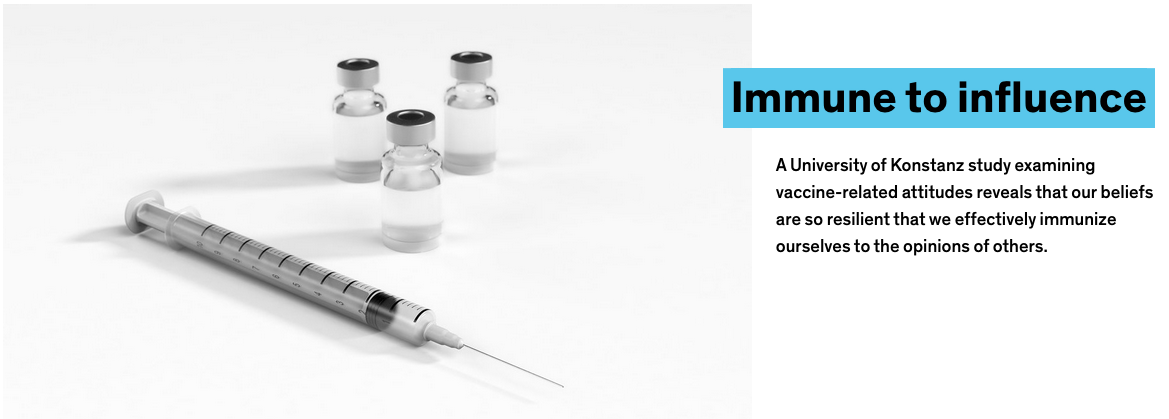
Abstract
Background
Online discussions may impact the willingness to get vaccinated. This experiment tests how groups of individuals with consistent and inconsistent attitudes towards flu vaccination attend to and convey information online, and how they alter their corresponding risk perceptions.
Methods
Out of 1859 MTurkers, we pre-selected 208 people with negative and 221 people with positive attitudes towards flu vaccinations into homogeneous or heterogeneous 3-link experimental diffusion chains. We assessed (i) which information about flu vaccinations participants conveyed to the subsequent link, (ii) how flu-vaccination related perceptions were altered by incoming messages, and (iii) how participants perceived incoming information.
Results
Participants (i) selectively conveyed attitude-consistent information, but exhibited no overall anti-vaccination bias, (ii) were reluctant to alter their flu-vaccination related perceptions in response to messages, and (iii) evaluated incoming information consistent with their prior attitudes as more convincing.
Discussion
Flu-vaccination related perceptions are resilient against contradictions and bias online communication. Contrary to expectations, there was no sign of amplification of anti-vaccine attitudes by online communication.
Keywords: Amplification of risk; Diffusion chain; Opinion dynamics; Vaccine hesitancy; Social media; Polarization
Press release
- in English: https://www.campus.uni-konstanz.de/en/science/immune-to-influence
- auf Deutsch: https://www.campus.uni-konstanz.de/wissenschaft/immun-gegen-informationen
Reference: Giese, H., Neth, H., Moussaïd, M., Betsch, C., & Gaissmaier, W. (2020). The echo in flu-vaccination echo chambers: Selective attention trumps social influence. Vaccine, 38 (8), 2070–2076. doi: 10.1016/j.vaccine.2019.11.038
Related: Social influence and collective opinion formation
Resources: Download_PDF | Google Scholar
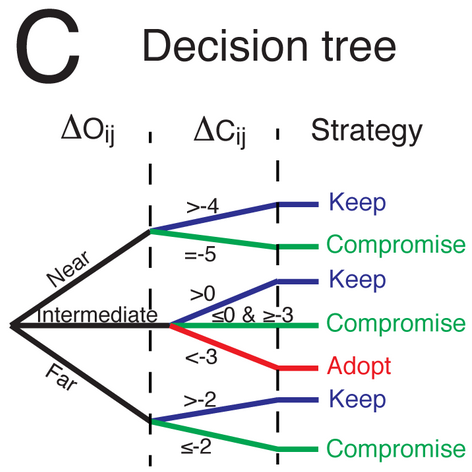
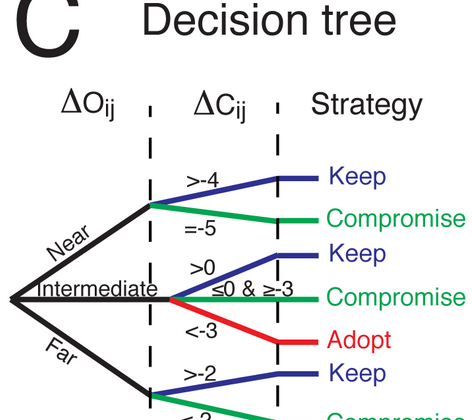
Paper: Social influence and collective opinion formation
Mark Twain, Christian Science (1907, Book 1, Ch. 5)
Mehdi Moussaïd, Juliane E. Kämmer, Pantelis P. Analytis, Hansjörg Neth
Social influence and the collective dynamics of opinion formation
Abstract: Social influence is the process by which individuals adapt their opinion, revise their beliefs, or change their behavior as a result of social interactions with other people. In our strongly interconnected society, social influence plays a prominent role in many self-organized phenomena such as herding in cultural markets, the spread of ideas and innovations, and the amplification of fears during epidemics. Yet, the mechanisms of opinion formation remain poorly understood, and existing physics-based models lack systematic empirical validation. Here, we report two controlled experiments showing how participants answering factual questions revise their initial judgments after being exposed to the opinion and confidence level of others.